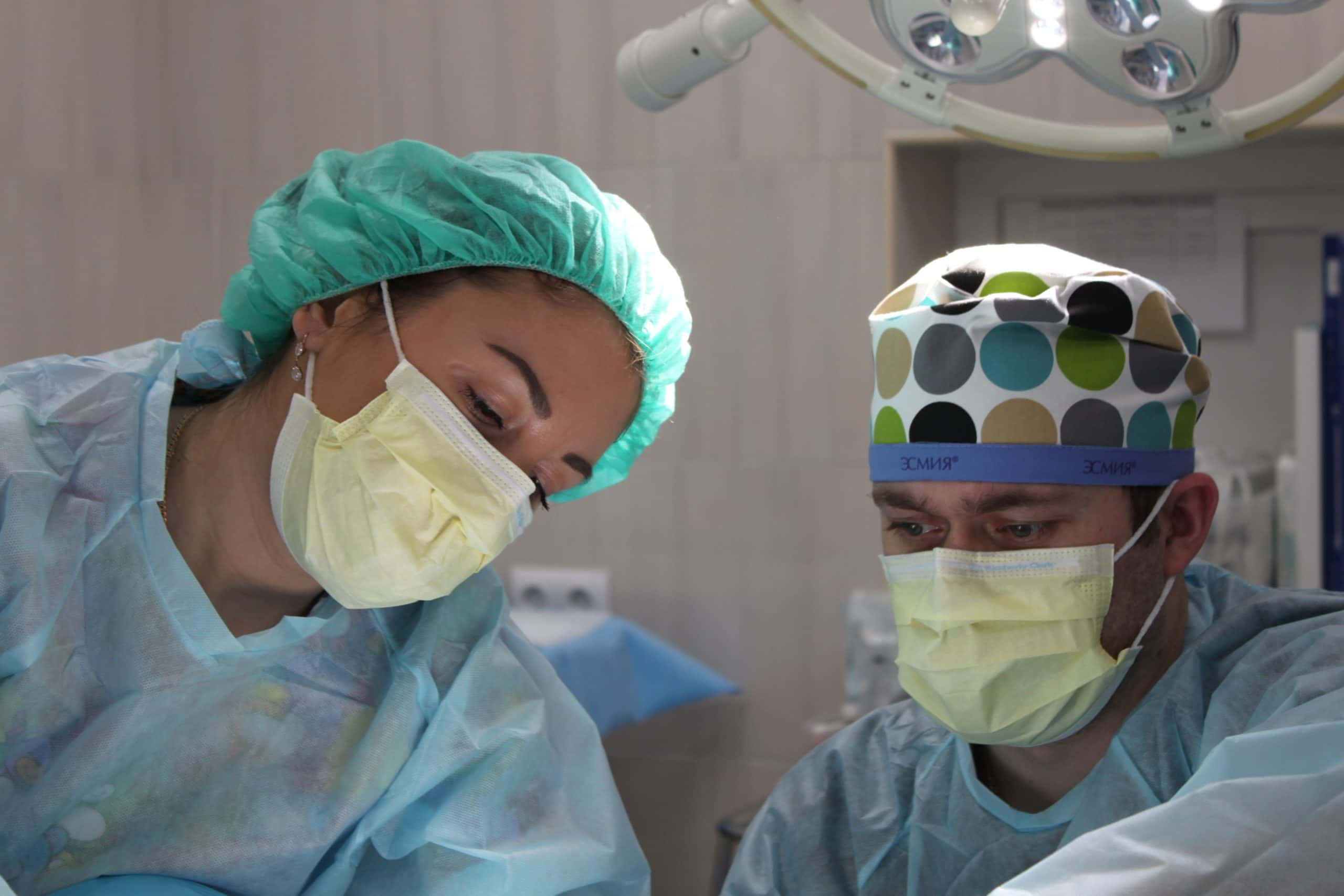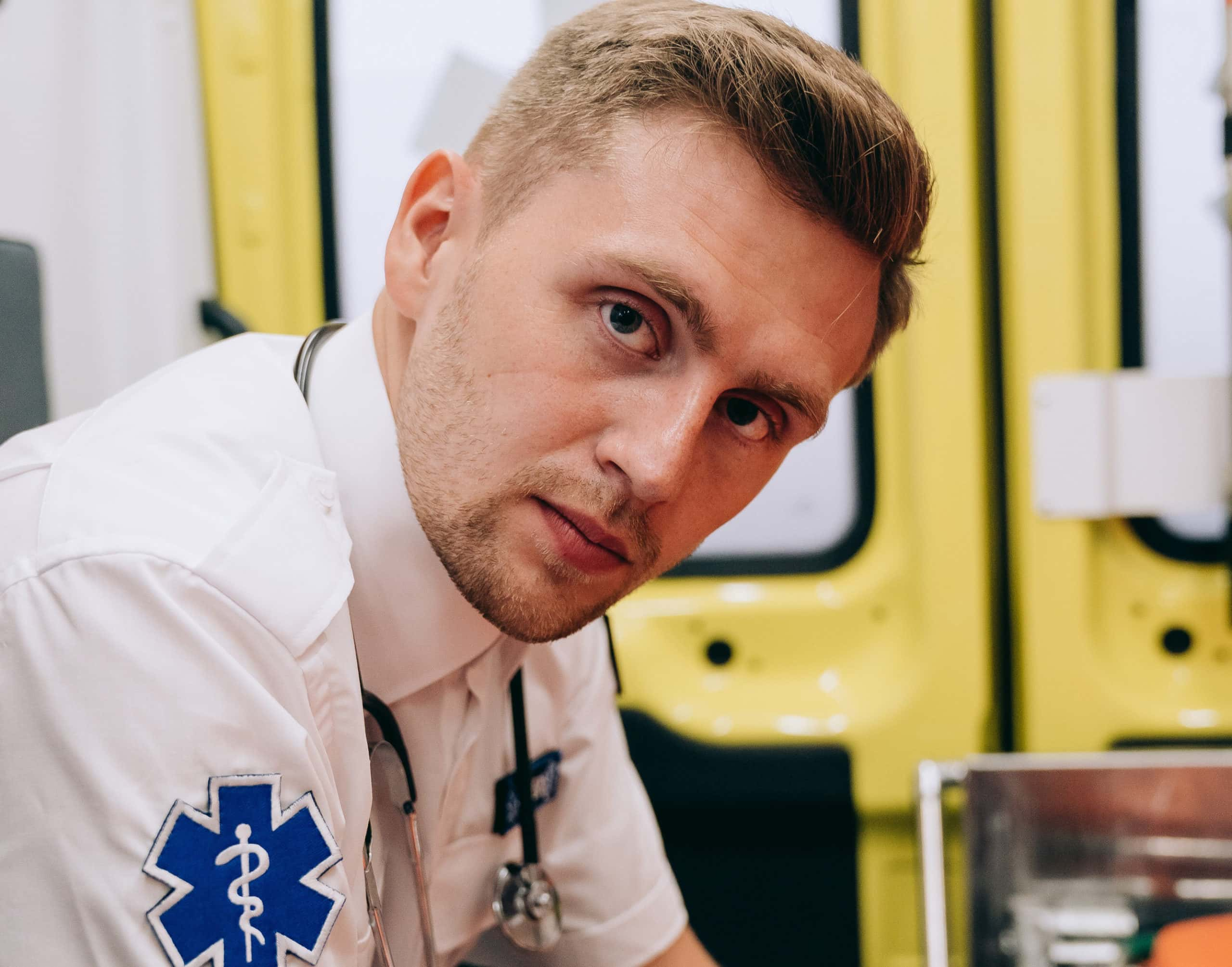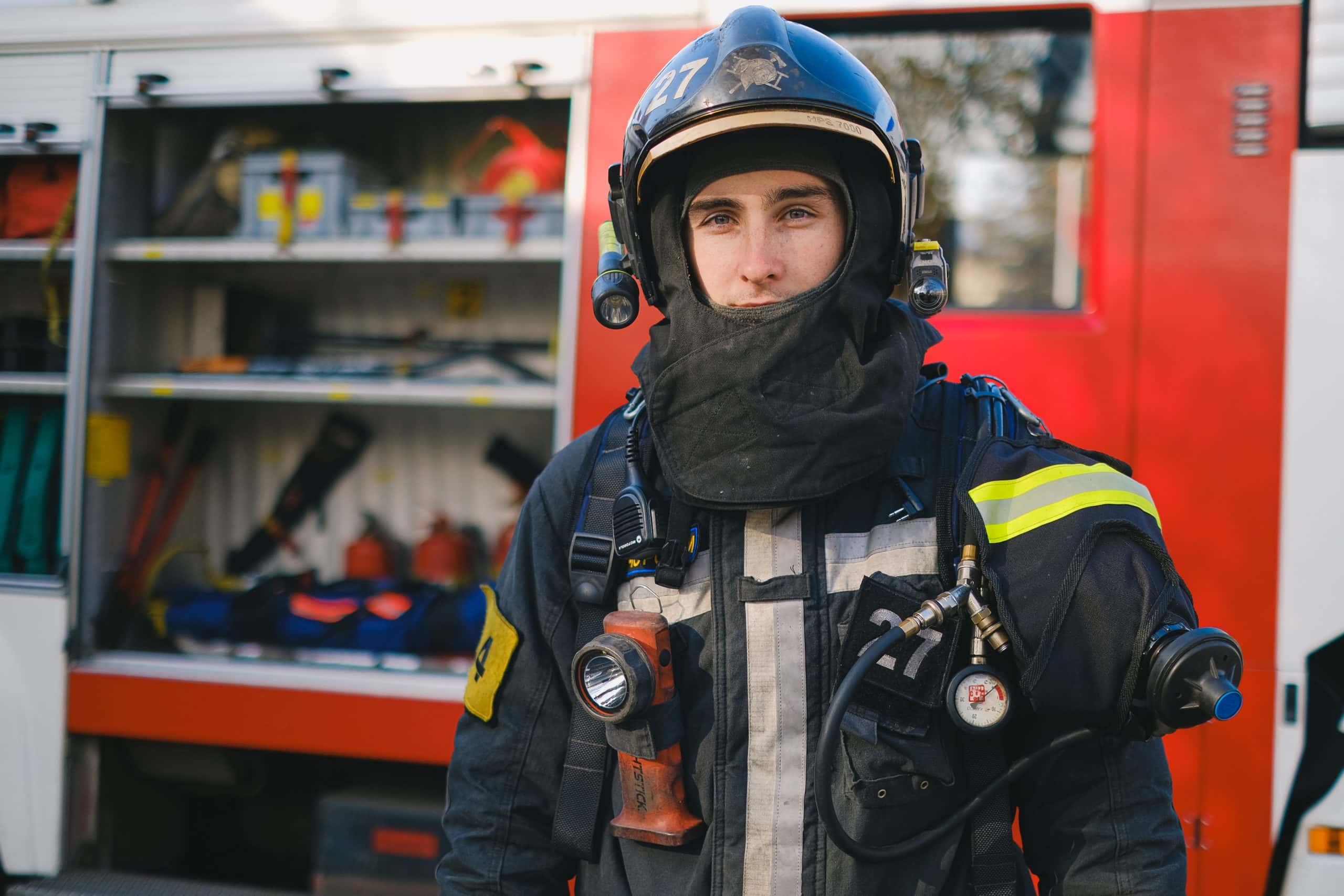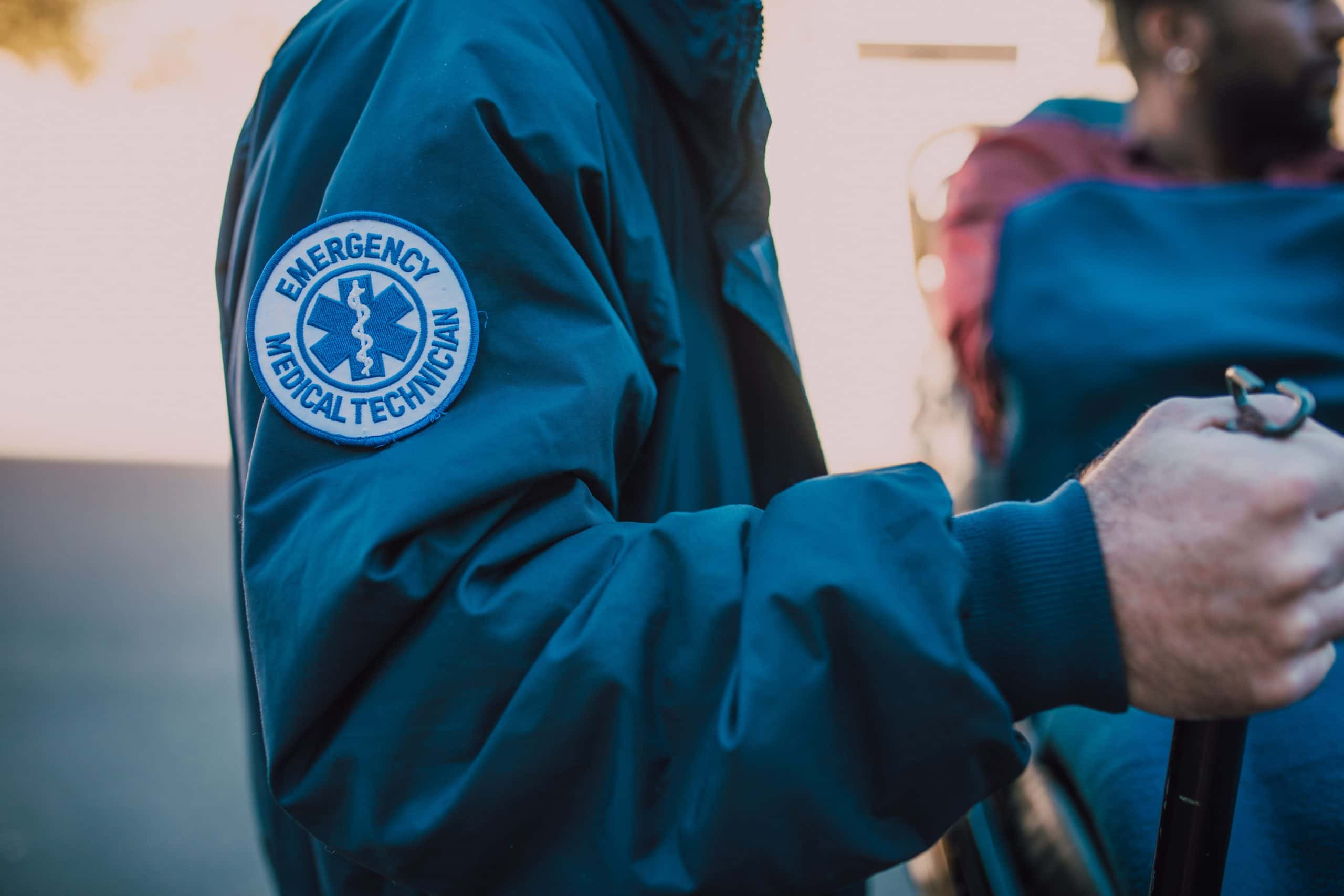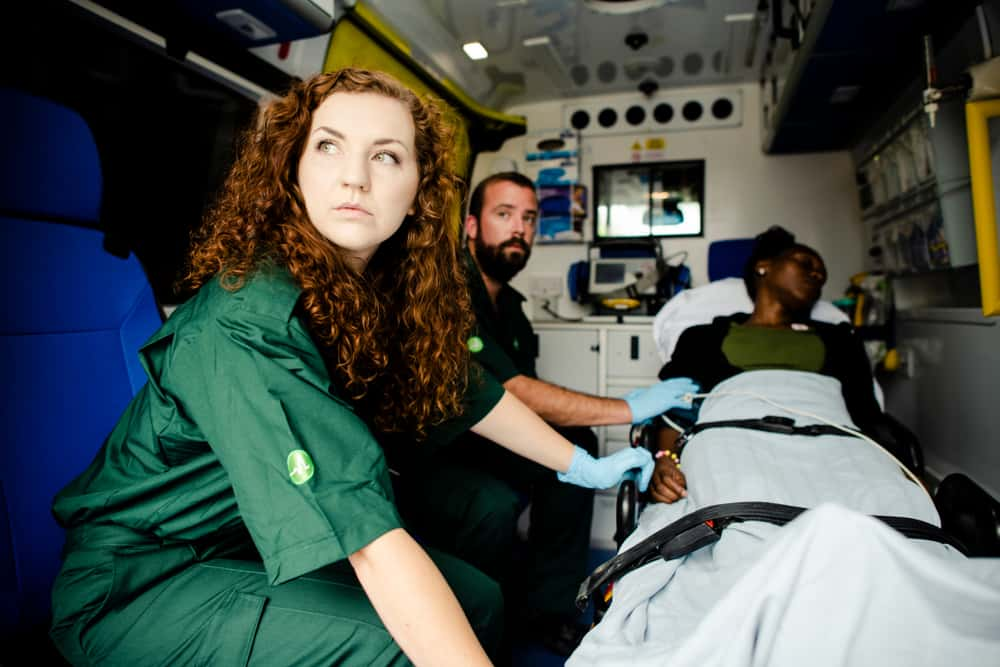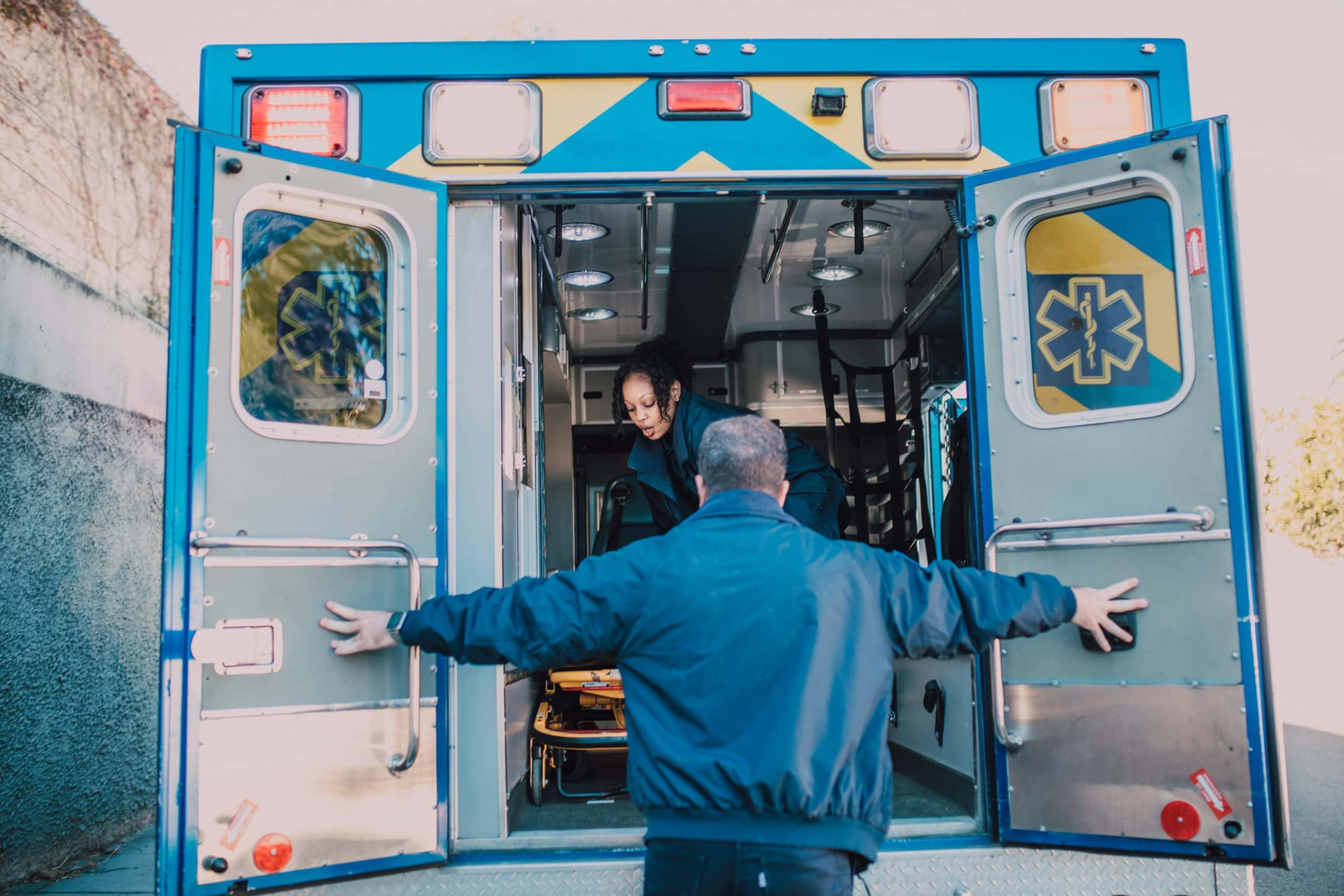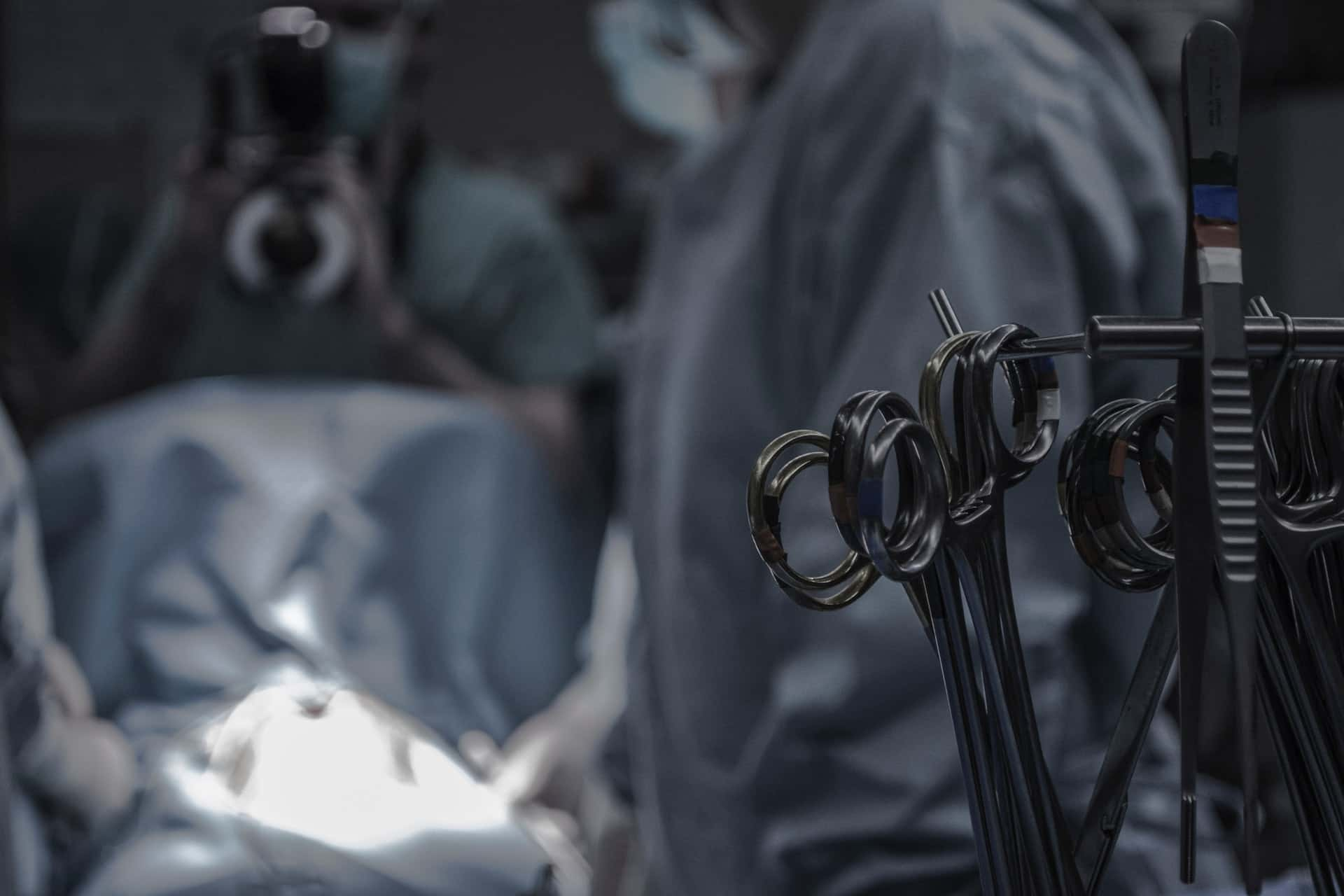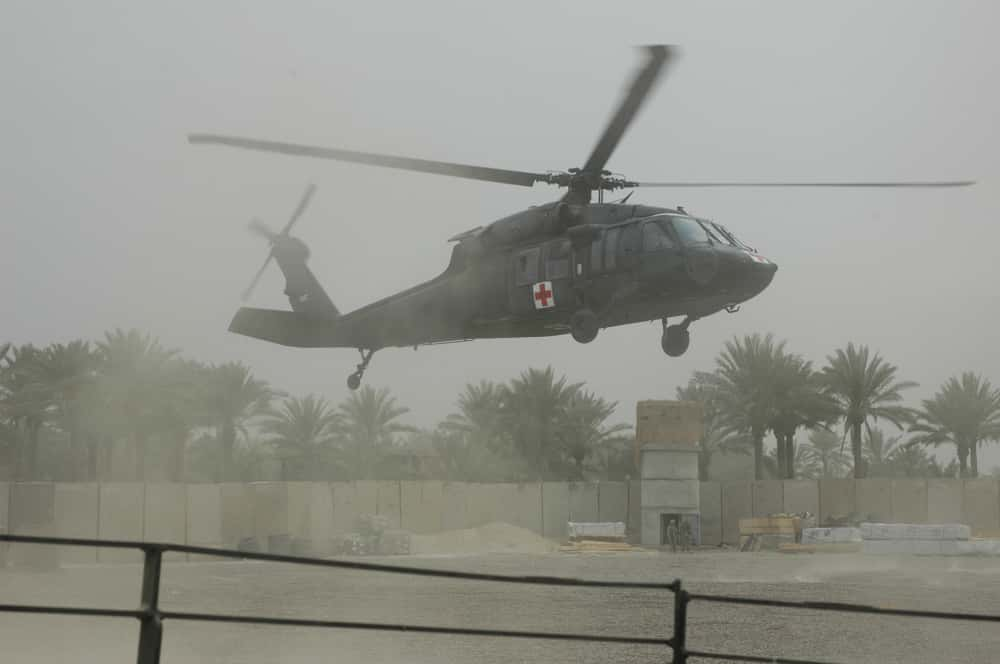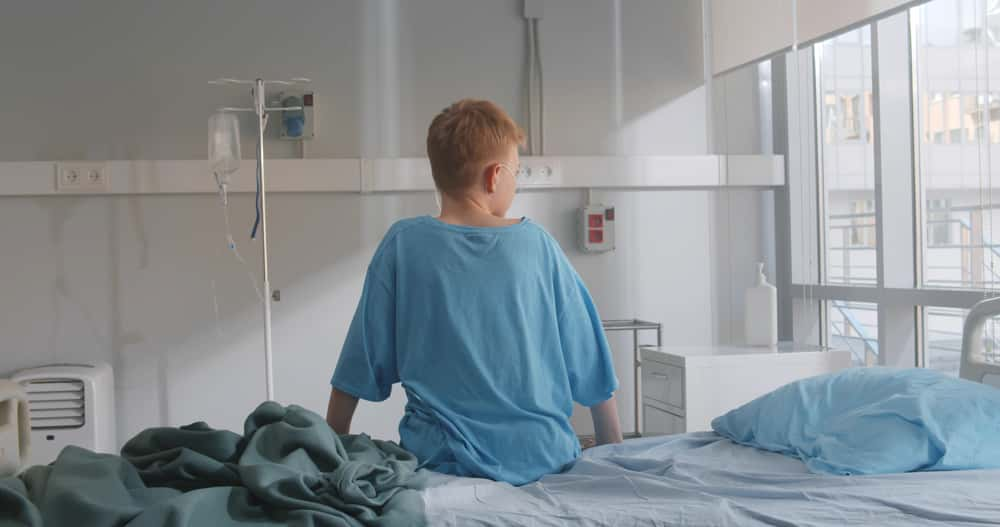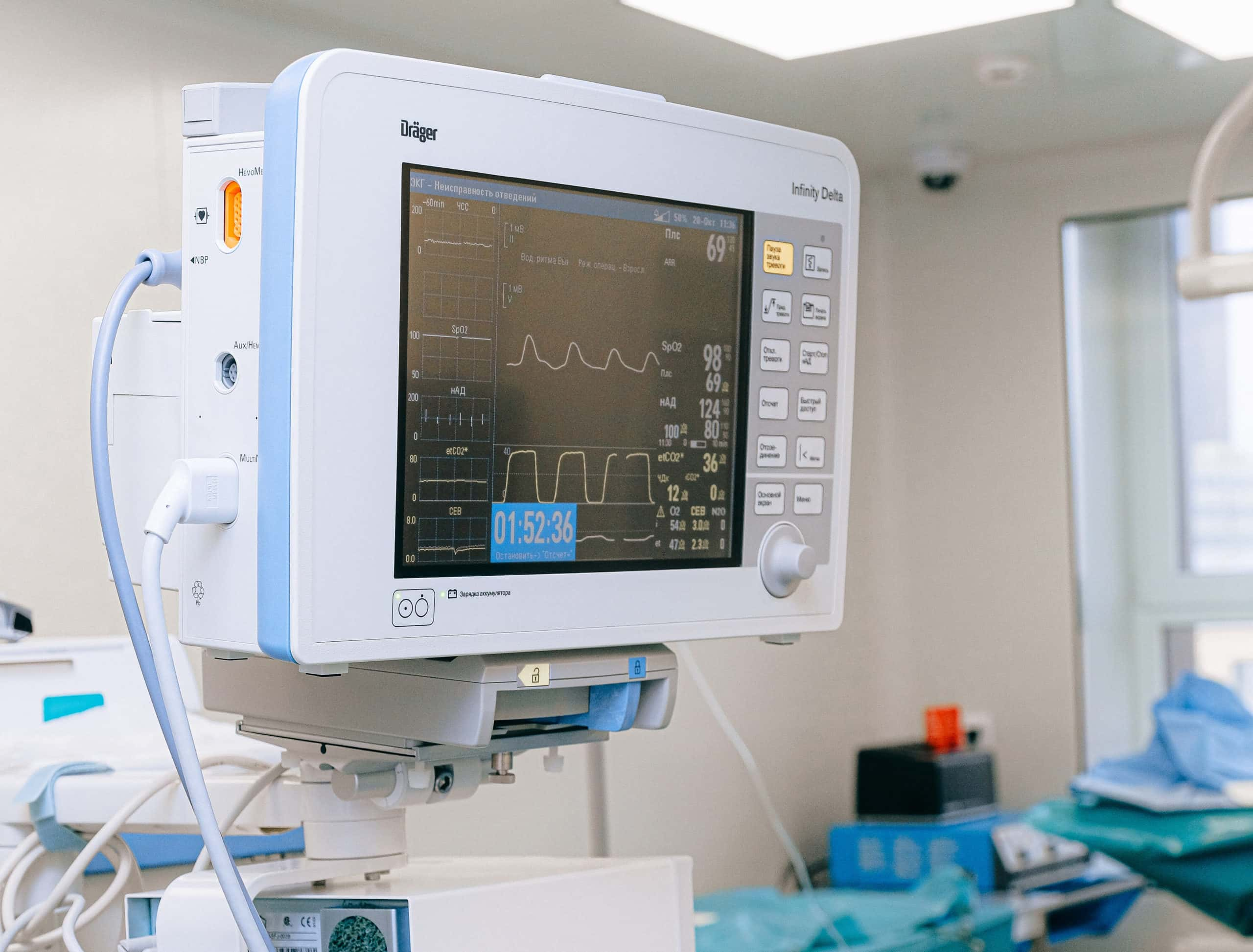Science has come a long way, but even the most skilled doctors are bound to lose patients to unavoidable circumstances. For the people in the stories below, a trip to the other side seemed all but inevitable. Only, it wasn't. No one knows how they did it, but they survived against all odds. Their doctors took to Reddit to share their miraculous stories of recovery and resilience.
1. Bouncing Baby Boy
I was working in the emergency department when a toddler came in after falling out of a 10-meter window completely unharmed. But that wasn't the worst part. The sad thing was they were from a rough neighborhood and the mom hadn’t even noticed. Apparently, some neighbors found him, checked him over, and sat with him for half an hour.
When the mom still didn’t show up, they went to find her. The child was admitted overnight, mostly for social reasons, but it’s just amazing how well kids bounce.
2. Ricochet
During my intern year doing surgery, a guy got brought in for a wound to the head. He was working at a jeweler that got robbed. His co-worker too far gone to save, but the patient was brought into the trauma bay. It was pretty hectic because of the wound to the head but…well, he was alive. Not only was he alive, but he was following commands.
Despite that, he wasn’t speaking, which was probably from the shock. The authorities gave us a report that said the patient was likely shot with a .357 snub nose they recovered at the scene. So, we did our primary and secondary survey of the patient, and all this guy has is a single wound to his left frontal scalp where the round went in.
The surgical team hadn’t really seen something like this before. Sure, a shot to the head wasn’t new but this guy was otherwise completely fine. The decision was made to get a quick skull X-ray to verify where the round was before proceeding to the CT department. We couldn't believe what we saw. There was no bullet.
And it wasn’t on the board, or the bed, or within the patient’s clothes. The man was shot in the head and the round bounced off his skull. The CT scan showed that there wasn’t even a fracture. It was wild. I’ve never seen anything like that since.
3. The Driftwood Splinter
I used to be a surgical resident in a small-town hospital. One evening, we got paged to see a patient for a speared piece of driftwood through the leg. We were thinking he might have had a nicked femoral artery and were discussing if the poor kid needed amputation when we saw him. He was standing on the skewered leg.
Turns out the wood missed every single one of the vital vessels and there was no fracture. He walked away with just a bit of muscular damage.
4. Open Wide
I worked in a trauma center as a scribe before starting med school. Basically, I was attached at the hip with a doctor to do their documentation. One guy crashed his car into a wooden fence, and a wooden fence post went in his mouth and came out the back of his neck. It was the kind of fence post that was double the size of his mouth.
It had basically pushed all of the important anatomy to the side as it impaled him. There were consulting doctors for like 10 different specialties working on this guy while he was laid up in the hospital. Several weeks later, after he had fully recovered, he walked back into the emergency department to thank everyone.
5. All In A Day’s Work
I am an emergency nurse. Once, we had a guy come in who had been cutting a tree with a chainsaw when it hit a knot in the wood and kicked up into his neck. This is where it gets downright incredible. He finished cutting the tree because he knew his wife would make him get rid of the chainsaw. Then, he put a towel over the wound and drove himself to the hospital.
The CT scan showed no vascular damage. We simply washed out the injury and he was sent home the next day.
6. Little Lazarus
My dad is a doctor and he told me this story. He has this 12-year-old patient, let's call him “Tim”. Everyone in the hospital firmly believes he's immortal. Tim was born with a bad heart and is constantly in an out of the ICU. By “in and out of the ICU”, I mean he goes in almost once or twice a month. Nine out of 10 admissions, Tim flatlines.
Strangely, Tim always comes back, even if they don't resuscitate him. I'd say Tim has flatlined about 15 times by now. It’s gotten to the point that whenever Tim flatlines, nobody panics. Not even his mom, who fell to the floor in tears the first three times he flatlined. During his last visit, one of the other doctors says, "Hey, guys, Tim's vitals are dropping".
My dad goes, "Again? Whew, that kid's definitely going for a record". Tim's pretty chill about it all. He talks about his ICU trips similar to how a normal kid talks about a mildly eventful day at school. Nobody knows how the heck Tim always come back. He just does. Frankly, I'm surprised the media hasn't done a story about it. It's absolutely incredible.
7. The Flood
During the first year of my core surgical training, I was on call in a very small rural hospital. This hospital only had two doctors on at night—me and a medical trainee. There were no emergency doctors. It was about 11 pm and this 26-year-old guy came in after being in a fight. Blood was pumping from his nose, which was clearly fractured.
I suspected he probably had other facial fractures underneath, but he was awake and talking to me, and otherwise seemed fine. I spent about 45 minutes trying to stop the bleeding, using all sorts of nose packs and pressure. I even tried a catheter balloon to try and tamponade it. It took a big turn for the worse. Nothing was working, and he was starting to go into shock.
I was basically freaking out at this point. Based on his vitals, I'd estimated he was on the verge of losing a critical amount of blood. The nearest proper surgical hospital was 45 minutes away, and my consultant was at home, which was 25 minutes from the hospital. Eventually, I got four bags of O-negative from the lab.
Then, I put the guy in the back of an ambulance, still bleeding, and sent him to the surgical centre in the city. I got a phone call about three hours later from a surgeon at the other hospital. He had brought the patient to the operating theatre and had been able to control the situation. The patient was probably 15 minutes away from being a goner.
If you come into that kind of small hospital with that much bleeding, all stats say you're in trouble. That guy was very lucky that his friends got him in so quickly.
8. Tight Squeeze
I’m a paramedic. I once went to a car wreck where a dude had driven head-first into the corner of a brick bridge. The collision took a huge wedge out of the bottom of the bridge and left the car about one quarter of its normal length. All the impact was on the driver’s side. I turned up only two minutes after the crash and fully expected it to be a fatality.
I walked around to the driver’s side and, somehow, he was fully conscious but squeezed into the only space left in the car. It took almost three hours to get him out. When we finally did manage to extract him, he had absolutely nothing wrong with him other than being an idiot driver. I still wonder how he survived that.
9. A Bumpy Ride
During one of my night shifts as a medical student, I had to take charge of a patient who came to the ER for a “car accident”. Well, that’s quite common. But it gets weirder. What was not so common was that he came by himself—from miles away—by calling a taxi because his car was absolutely wrecked in the accident. Normally, when a car ends up upside down, after two or three roll-overs, the passengers aren't really fine.
This patient, however, was totally okay. No broken bones, no head trauma, no abdominal pain, nothing. He just came to the ER because he had little abrasions over his knees and one elbow hurt when it rubbed against his clothes. Three Band-Aids later, and he was good to go!
10. Heartstopper
One time when I was on the trauma team, a man came in carrying a second blood-soaked man in his arms. We got him onto a stretcher, and it was clear he had a round to his chest and had gone into cardiac arrest. We started chest compressions and within minutes the consultant was performing an open thoracotomy in order to start cardiac massage.
Heart surgeons joined us quickly and got to work on the heart. They were fixing a hole in the right ventricle. All the while, bag after bag of O-negative was being pushed into the patient in an attempt to replace everything that had pumped out of his heart and into his chest cavity. About 20 minutes into this, the impossible happened. The heart started beating on its own.
The patient was taken directly to the operating theatre, and the hole in his heart was repaired. Somehow, his heart continued beating and after a couple weeks, the patient was returned to the trauma ward. He was wide awake and alert. Several weeks, some mild hypoxic brain injury, and a gnarly chest scar later, the patient walked out of the ward. He walked out with his dad, who turned out to be the man who had carried him in.
11. Vital Signs
My friend had been feeling cruddy for a long time, so he went to the doctor. The doctor ordered a bunch of blood tests and ordered them on a “rush” basis. The lab called the doctor to ream him out: "Why the heck did you make us rush these tests?" The doctor was confused. Their answer stunned him. The lab was like, "The guy is clearly dead now, so what's the rush?"
The doctor called my friend and told him not to drive, but to get himself to the emergency room ASAP. Turns out the guy was a Type 1 diabetic and hadn’t realized it until way later in life. Apparently, his bloodwork suggested he was a corpse rather than a living person. Luckily, everything worked out for him and he's still doing fine.
12. Countdown
I remember back when I was around 23, I was stubborn and didn't go to the doctors to figure out why I was feeling weak and numb all the time. I had also had some blackouts, but I brushed it off until I literally couldn’t get up to walk to the bathroom. Thinking it was just a cold or flu, I finally went to the emergency room.
My blood count was at three. A regular blood count should be around 14. The doctor said he didn't know how I was alive still. I was lucky I got there when I did.
13. The Levee
I was the patient. I had been puking for three days straight before going into urgent care. I wasn't even going to go in, but my family said I looked awful, and I eventually relented. They said I had appendicitis. Due to a mix up, I didn't get operated on for over a day later. When they went in, they got quite a shock. My appendix was gangrenous and had basically disintegrated.
Turns out it had ruptured days ago. Normally, this floods your body with toxins and you're a goner, but apparently my colon was positioned in such a way that it blocked that from happening. I was in the hospital for another week before my digestive system restarted, and I had to have bile pumped out of my stomach. All in all though, it wasn’t a terrible experience.
14. The Great Unknown
My husband took me to the local hospital's emergency room for ongoing severe lower abdominal pain. The nurses took blood, hooked me up to an IV, and gave me a little bit of pain medicine. A nurse I hadn't yet seen came into the ER room looking very nervous and told me I was being admitted because my platelet count was 6,000.
My husband and I were like, “What?” The nurse was very surprised I didn’t have other symptoms like bruising, nosebleeds, and blood in my urine or stool. He looked very concerned, and the medical team rushed to get me into a room. The only symptoms I had were fatigue and a heavy menstrual flow, but both symptoms had been my companions since I started my period at 11 years old.
The next morning, a hematologist came to my room and explained my diagnosis. They had no idea what caused it. He told me I was lucky to not have had crazy internal bleeding, bleeding into my brain, or a stroke. He prescribed a regimen of 60mg of Prednisone daily, which I was on for a year and a half.
The low platelet count made no progress. The doctors finally decided to proceed with an operation to remove my spleen. The recovery was brutal. Having a huge incision down the length of your abdomen makes everyday tasks very difficult and painful. Almost five years later, my platelet count is normal. My period is still the bane of my existence, though.
15. Car Troubles
I'm a firefighter, so I see my fair share of trauma. About a year ago, we had a call that made me stop in my tracks. It went out as an "individual who had a car fall on his face". He was in his garage while working underneath his car, which was supported by scissor jacks. Something to note: the car didn't have any tires on the front end where he was working.
One of the scissor jacks had slipped out from underneath the car, and the whole weight of the car landed directly onto the side of his head with no tires to stop the fall. We got our rubber airbags out, lifted the car, pulled him out, and got him onto a stretcher. After taking that much weight to the head, he somehow got out of it with just a fractured orbital and a laceration on his cheek.
16. Sleeping Beauty
An elderly lady had a massive brain hemorrhage and was transferred to terminal care in the in-patient ward I was working at. Her prognosis was that she would pass at any moment. There was no treatment, she was comatose, but breathing spontaneously through a tracheotomy tube. A week passed with no medications, no food, no fluids.
Yet, she was still alive. Then, she began to stir, and became conscious. Delirious, but conscious. So, we started IV fluids, appropriate medications, and eventually physiotherapy. After a few months, she moved into the local nursing home and lived there for a few years. She had profound dementia but was able to move around.
I sometimes wonder if the air-moisturizing device in the room kept her hydrated, because a healthy person would generally not survive a week without fluids.
17. The Case Study
During my undergrad, my anatomy tutor told us of an interesting case study. A woman in the same department had been in a car accident, going a considerable speed. The seat belt failed to lock, and her face flew into the steering wheel. Her mouth, nose, cheekbones, and forehead were shattered. Yet, she suffered no brain damage. The reason why was pretty miraculous.
Apparently, the front of her face acted as a crumple zone and the fact that her skull shattered meant the cranial swelling didn't cause any damage because the brain had more space to swell into. She needed significant reconstructive surgery, but a year later, she and my tutor teamed up in a research project. They used her case as the basis for looking into new ways to treat severe head injuries.
Based on that research, they developed new treatment protocols depending on where the skull had taken damage. They basically found out that if you're going to have a head injury, you should try and get hit in the front of the face and not the temples because you're much more likely to survive.
18. Invincible
My grandma-in-law was in her early 80s, on blood thinners, and took a nasty fall and hit her head. Quite a common injury, unfortunately, and she was admitted to the hospital. The amazing part is that for three days her condition worsened and the signs that she had a brain haemorrhage went unnoticed. That is, until she became unresponsive.
Then we had all the bells and whistles. She was airlifted to a larger hospital, and I spent the day preparing my family for the worst. The bleeding had gone unchecked for a long time and if she did survive, we had to prepare for her to be different. That wonder woman woke up a few hours after surgery with zero impairments.
Her memory was intact, and she remembered everything right up to hospital admission. It was an amazing recovery that we're all very grateful for.
19. Cardiac Commotion
My husband was the patient. He was jogging and had a heart attack. After collapsing on the side of the road, a couple found him and called an ambulance. He then coded twice on the way to the hospital and had a balloon pump inserted on arrival. He had to undergo an emergency surgery to replace a heart valve just 12 hours later.
To make matters even worse, he then had secondary complications and ended up in the hospital for three months with a nasogastric tube. Everyone at the hospital was surprised that he made it. His doctor even wrote him a letter to congratulate him on his recovery.
20. Perspective
I had a rare type of ovarian cancer that presented as tumors called “teratoma”. They were bilateral and massive, which is even more rare. When I was diagnosed, all they could see on the imaging were masses with various densities and lots of inflammation. Everyone was trying to be optimistic to my face, but I could tell it was really bad.
They told me they couldn't give me a realistic scenario until after the surgery. They said they needed to go in and take out anything and everything the tumors were involved in. I was 35 at the time and said, “If you see that it's that bad, just sew me up and that's it”. I didn't want chemo and radiation, or to be left with no kidneys, bladder, or intestines.
When I was put under, there was a team of about 20 people there. There was every type of specialist oncologist surgeon you could imagine. There were even pathologists to do all the slides in the OR. Everyone looked at me like I was already gone. I asked for a Valium and went under. When I woke up, my world changed. I hurt really bad but felt better. It was so odd, like I’d had the flu and it was just gone all of a sudden.
I looked around and all the nurses and doctors were there. Some of them had obviously been crying but they looked happy. I was doped up, obviously, and was struggling to put two and two together. Then, I really opened my eyes, and someone started clapping and they all wanted to hold my hand.
I was like, "Okay. I didn’t make it?" The main surgeon was holding tears back and told me that it was all going to be okay. She explained to me I had massive teratomas and while we had caught them still in the benign stage, they had been adhered to stuff. That’s why the scans looked like my abdomen was riddled with late-stage cancer.
She started crying really hard and laughing at the same time and said, “You're going to be totally okay, pending the final pathology on all the lymph nodes”. It gets better. Later, the nurse told me that when they opened me up and figured out what it was, a cheer went up in the OR. They did a radical hysterectomy, and I was supposed to be in the hospital for four days.
Five hours after surgery, I told them to pull the urinary catheter and had them help me up. I refused to use the bathroom in my room and insisted I walk myself to the toilet at the end of the hall every time I had to go. I was discharged the very next afternoon and never looked back. That is about as close as I ever want to come to dying until I actually die.
I'm living the very best life I can now. I sold everything I owned and moved the horses and my truck to Scotland. I'm getting my doctorate and dealing with all the demons in my life. The amount of power I have now is incredible and the world seems more vibrant. It’s hard to explain, but a lot of the fears I had are gone now.
It seems a lot like what the astronauts get. When your perspective becomes vast, and you realize the world is a small speck in the universe and you get a profound sense of the world's humanity. The only downside is that sometimes it makes normal stuff seem totally trivial. But that’s a price I will gladly pay to see the forest instead of just the trees.
I was very vocal about what happened to me after and encouraged people to go get their yearly exams. As a result, two people I know went to do their exams and the doctors caught cervical cancer early. They are both doing great now.
21. Withering Away
A patient in his late 90s was admitted to our hospice for terminal care because of untreatable multilevel bowel obstruction. It was confirmed on a CT scan, and obvious from his swollen abdomen and profuse vomiting. The guy was, however, absolutely charming and completely at peace with this. He didn’t want discomfort and felt he’d had a good life.
He was scared to eat because of the vomiting it caused—if the bowel is blocked, then any eating has to go back out the way it came in. Other than that, he was comfy enough with just a little pain relief. He was also lovely to chat to, very reflective, and articulate in his speech and mannerisms. The surgeons at the local hospital had told him that he had days, possibly hours, to live.
He barely drank anything and ate literally nothing. Shockingly, this continued for two months. Though he lost a tremendous amount of weight and physical capability, it seemed that during this time his bowel obstruction had spontaneously unobstructed. We ended up getting him home.
22. The Human Kebab
This is a story about my dad's best friend, or as he's more commonly known, the “human kebab”. So, this guy decided to take his dogs out on a walk on a particularly cold Scotland morning and, on his way out, slipped on some ice. Unfortunately, he landed on a metal pole that was being used to hold up flowers or something.
This pole went in through his side, just under the ribcage, I believe, and exited through his neck. After being rushed to the hospital and having x-rays and whatever done, the doctors concluded that the pole had missed all vital organs, veins, and arteries. They basically just had to pull it out. This all happened many years before I was born but I still find it hard to believe.
23. Resilient
This happened in a developing country where I was a med student. It was a Saturday evening, and I was working a pediatrics shift. The neonatal service sent us a newborn who looked to have an infection. The baby was very likely to perish if he didn’t get the correct treatment. There was a huge problem, though. Our service was for older children and the treatment he needed was not within our expertise at all.
We didn’t have the necessary infrastructure to help a newborn. Heck, we didn’t even have all the necessary meds for our own patients. The newborn needed a heating bed if we were to have any chance of providing even the most basic treatment. So, after some tinkering, we improvised one by heating up some serums in our oven.
Then, we surrounded the little boy with them and gave him some antibiotics. Despite doing all that, we knew it was only a provisional solution. The baby’s inevitable demise would come sooner or later. Our shift ended a few hours later. We were quite sad about the little baby, and we told him "goodbye" as we left for the weekend.
To our surprise, when we returned on Monday, he was still alive. He was even showing stronger vital signs than many of the other kids. Technically speaking, it should have been impossible for the newborn to have survived that long. We were genuinely impressed by the amazing turn-around. Babies are really good fighters.
24. Sheer Determination
A little over a year ago, my little sister was hit head-on by a driver in a collision. The guy had gotten the wrong way onto the highway and my sister had just worked second shift. The collision happened at about 3 am, and no one found them until 5 am. They thought that my sister was gone when they pulled her out of the car.
However, several transfusions on the way to the hospital later, she actually made it there. When I got to the hospital at about 8 pm that day, everyone still thought that she wasn't going to make it through. The nurse who admitted her actually came in that night, during her time off, to check on my sister and see if she made it.
I've never seen anyone look that bad. Literally her entire body was black from bruising. She lost her spleen, half of her liver, she had lacerations internally on her stomach, and the entire left side of her body was pretty much crushed. Her hip was broken, her pelvis was fractured in two places, and I can't remember how many surgeries she had over the course of the next two weeks, but it was a lot.
That time period is pretty much a blur for me, because she was in a coma for a lot of it and sleeping on a chair beside a hospital bed in the ICU is not the most comfortable thing in the world. I'm pretty sure I didn't sleep for five days. However, my sister finally pulled through. She woke up out of her coma on day four.
The bad thing is that my sister’s allergic to morphine, so they had her on two sedatives, two different painkillers, and an allergy medication. To say that she was out of it would be an understatement. Her doctor told her that she wouldn't be able to eat for at least two weeks, but she started eating after about a week.
They told her she wouldn't leave intensive care for over a month. She left after two weeks and was home after three. She was told that she wouldn't walk for at least a year, because of all of the damage to her body, all of the pins and plates that she had, all of the surgery she would need, and time for her hip and pelvis to heal.
After 11 weeks, she took her first steps, completely unassisted, and never turned back. At the time she had a three-year-old and an eight-month-old who didn't really understand what was happening. It was really hard, especially because my sister couldn't even hold the baby without being in massive pain. That went on for a couple months.
I think it was probably four or five months before she slept in her bed again. The way she handled her recovery truly amazed everyone at the hospital and every one of my family members.
25. Dancing With The Reaper
I’m a paramedic. We were dispatched to a case of shortness of breath, which usually turns out to be nothing, so I wasn't all that ramped up when we arrived on-scene. The situation changed so quickly. The fire department beat us there and when we pulled into the parking lot, the junior firefighter was running out to the ambulance to get to us. The guy says, "We gotta get him outta here".
At the door, the Engine Captain was looking stressed and says, fittingly, "We gotta get him outta here”. That didn’t sound good either, but he wasn’t a medic, whose opinion was the only one that really mattered. Brian, the medic, was an absolute rockstar whose judgement I'd trust under any circumstance. Brian said, “No joke, we gotta get him outta here".
The patient was a 19-year-old male. He had pale, cool, and sweaty skin, and was vey confused. He had a low blood oxygen level, and we were eight minutes away from the hospital. If I have learned one thing in the last 12 years, it's this: If your patient tells you they're going to die, believe them.
En route, the kid’s heart rate tanked, his pulses faded, and his breathing slowed dramatically. As I am sure you know, those are all bad. We started CPR. It got super strange. When we compressed, the kid opened his eyes and pushed us away. Doing CPR on a patient who is watching you do CPR on them is an interesting experience. Eventually, he quit pushing us away, so our job got easier.
We worked him all the way to the hospital. The emergency department worked him for an hour and a half—the epinephrine, fluids, and other meds briefly produced pulses before they'd fade away again. There was a period of V-fib in there, too. It was horrible. Eventually, they managed to stabilize him, but it didn't look good for our friend.
He began to seize, and it looked like he was going to come out with considerable neurological deficit. As you can probably guess, he lived. But what caused it? The problem was a huge clot blocking blood flow between his heart and his lungs. The kid had a known bleeding disorder that he hadn’t managed.
They told us on-scene that he would joke that someday, he'd just keel over and be gone. Well, not this time. He walked out of the hospital a week or so later without any deficits. I have no idea how.
26. Brainwaves
I was the patient. At two and a half years old, I had a stroke. I was in a coma for about eight days. None of the doctors could believe it, probably because it’s unusual for someone to have a stroke that young. Before I woke up, a doctor even told my parents to prepare for my passing as it looked like I wouldn’t make it.
Well, I still had brain activity, which showed that I was reacting to my parents touching me and talking to me. Eventually, I opened my eyes and very slowly progressed to moving my limbs. I had to relearn how to walk and talk, as part of my brain had deteriorated. Surprisingly, I really don’t have any side effects. I’m very lucky.
27. If At First You Don’t Succeed…
Paramedic here. We were dispatched to a “person who fell”. Another update said “unconscious”. The last update, which came about a minute or two before we got there, was “unconscious, not breathing, CPR in progress”. A lady in her forties was deceased. Like, for real. She was cold, had rigor mortis, pupils were fixed and dilated, and the monitor was flatlining.
Not only was she gone, she’d been gone for a while. The fire department was doing CPR, but it seemed futile at that point. I called the hospital to talk to a doctor. I asked the physician on the other end, “Hey, can we get orders to stop resuscitation efforts on this patient?” The physician said, “Nah, she seems kind of young. And I know it’s probably futile but go ahead and keep working and bring her on in”.
That was fine, no problem. We kept going and got the IV. I intubated her, gave her some epinephrine, put the thumper on her, gave some more epi, some bicarb...and I still to this day shiver at what happened next. Holy smokes, she had a pulse! A week later, the patient got discharged from the hospital to rehab with “only mild cognitive impairment”.
Basically, she had to learn to use a spoon and fork again and she lost a week or two of her memory. That was it. Thank God for that doctor not wanting to give up.
28. Burning Up
We got a call for a young woman burning with fever, and I was already rolling my eyes—I mean, take your car and go to the hospital, or call the doctor for a home visit. An ambulance probably has better things to do. We arrived there, and there she was calmly sitting on a chair waiting for us. We took the temperature, and the fever wasn’t even that high. Now I'm extra ticked.
The nurse asked, "So, miss, what happened?" The lady said, "I went to the toilet to pee, and I expelled a blood clot". The nurse nodded, "Hmm, alright, maybe that would actually be worth checking. How about the fever? Since when have you had it?" The lady replied, completely calm, "Let's see...Yes, it was May. I had a miscarriage in May, and since then I’ve had a fever”.
"Wait, what? It's November now. You have been feverish for six months?" The lady nodded, “I took Ketoprofen". This gal had a miscarriage, didn't check with a doctor and, despite the fever, proceeded to take Keto for over six months without giving it a second thought. The nurse was impressed she’d survived that long.
29. Uncaged
I work in the quality department for a large hospital system. I do a lot of work with the trauma doctors, and this story takes the cake for me. A guy who crashed his four-wheeler into a fence was brought in to see us. One of the posts impaled him under the rib cage—it went up to his jaw and literally took off his rib cage.
His lungs and heart were still working when he came into the trauma bay. Everyone kept wondering how he was alive. They were able to rebuild him a new rib cage and he walked out a few months later. There was actually a TV crew from the show Trauma Life in the ER, so a tape of his treatment exists online somewhere.
30. Unbelievable
Last December, I got bacterial meningitis and sepsis. My now-husband brought me to the local ER because after lying in bed all day, I had developed weird purple spots all over my arms and legs. The ER nurse who admitted me recognized the spots as a sign of Disseminated Intravascular Coagulation disorder (DIC). I was immediately given an IV in my neck and the staff brought out the really heavy-duty antibiotics.
I ended up staying six nights in the ICU and another six nights on the main floor. I lost a ton of weight and muscle mass, almost had to have a toe amputated, and needed a cane to walk for several weeks. But the week after I was released, my partner started feeling sick and we went back to the same hospital ER to make sure he didn’t have the same thing I did.
The doctor that day was the same one who had given me the neck IV. They spent more time staring at me in sheer disbelief than talking to my partner about his symptoms!
31. Hit And Run
When my brother was a child, he was hit by a speeding Range Rover. He bounced off the bonnet and went over the top and landed in the road. Miraculously, he didn't break a single bone. He barely even had a scratch on him.
32. Close Call
In 2011, there was an explosion in Oslo, Norway. It took out a few people, however, this one woman's story is astounding. She got a piece of plank shot into her head. From her perspective, she hadn't noticed and probably thought she was only knocked over by the blast. It wasn't until later, when people pointed out to her that she had a massive wooden spike pointing out from her frontal lobe, that she found out about it.
The wooden spike had lodged itself between her skin and skull. It narrowly missed penetrating into her brain. She recovered just fine.
 Pxfuel
Pxfuel
33. Handle With Care
I was a dumb 13-year-old reptile enthusiast with over 200 lizards and more than 15 snakes of my own. I would spend a lot of time hiking to find and photograph wild reptiles and amphibians. To make a long story short, I had experience handling a number of reptiles, and didn’t comprehend that a venomous snake was out of my league.
Picking up a cottonmouth as an inexperienced child resulted in two surgeries, three days in the ICU, 12 units of antivenom, and five months of physical therapy. The bite on my right thumb from a single fang has left my hand with 11 scars and a lot of nerve damage. I was told by the surgeon that if I had come in 15 minutes later, he wouldn’t have been able to do anything to help.
This was in 2012 and my surgeon, who had been practicing for 26 years up to that point, said mine was the second worst bite he’d dealt with in his career. I was beaten by a man who took a rattler to the leg and basically had the same surgery on his leg.
34. Youthful Resilience
I once had a kid with sepsis, oozing from every line and every orifice because his clotting factors were chewing up. He required ECMO, which is a lot like a bypass in that it diverts blood out of the body into a machine that oxygenates it and removes carbon dioxide. I was on service when the kid turned around. I still can’t believe he made it.
35. Perfect Fit
Last year, my aunt had a stroke that was so bad the doctors had to take out a chunk of her skull. If they’d hadn’t done that, the swelling would have ended her. She was paralyzed on one side for a bit, and she couldn't talk. But she had all kinds of therapy, and they were able to save the skull chunk and put it back in place. The turnaround was amazing.
Now, she's back to living alone and driving. She'll never go back to work in nursing, but chances are she'll be able to lead a decent life anyway. Neuroplasticity is a heck of a thing.
36. Bullseye!
I had a guy who took a 10-inch metal pipe right between the eyes. When he came in, the pipe was sticking about four inches out of his face. Although he was a little pale, he was fully conscious and could move both eyes. When we got the images, the tip of the pipe was about 3 millimetres from entering his brainstem. Dude made a full recovery.
37. Not The Target
I had an Iraqi casualty back in 2006. He was an 11-year-old civilian who walked over a pressure-plated IED. My teammates and I had just been inserted on a rooftop a block away for a mission that involved monitoring a dangerous stretch of highway and taking out anyone who attempted to set anything up on that stretch.
We were a block away and we heard, saw, and felt the blast. We got permission to leave our position and move to that location, effectively ending the mission. We arrived on-scene at the same moment as our mounted Quick Reaction Force arrived. As we turned the corner onto the street in question, we saw this guy laying on the sidewalk near a blast crater that was about three and a half meters wide and fairly deep.
As we approached, it became evident that the guy was just a kid. My first thought was, "Nope. No way". But he was breathing, rapidly and shallowly. Both lower extremities were gone just above the knees, there was severe penetration trauma to the thorax, abdomen and pelvis, and a severe cranial fracture. Basically, he had been thrown up into the air a considerable distance, landing where we found him.
Interventions were as follows: We put a tourniquet on both legs, dressed three of the more suspect wounds, did field chest tubes, colloidal drip, and pushed some epi. It was bad. Really bad. I've seen worse, but not often. We made the decision to race him back to the nearest base instead of having the Iraqi authorities take him to an Iraqi hospital.
It was the right decision. The kid ended up being flown to the hospital in Balad, and eventually got flown out of country. His parents were also eventually flown out. He was touch-and-go for four days and was in the ICU for two weeks. He had several significant procedures over the course of 30 days, including two state-of-the-art prostheses.
Amazingly, there were no long-term cognitive consequences stemming from the head trauma. He currently lives in Jordan with his parents and extended family, I think.
38. Nap Time
A kid swallowed two bottles of sleep medicine and washed it down with cough syrup. Chewable pills were on the scene too, but he must not have fussed with them. After one stomach pump and tons of IV meds later, the kid was catatonic but alive. He blinked, but nobody was home. Every time he saw a doctor, he swatted at them.
He started tearing out his IVs while remaining completely vacant. Eventually, he got restraints put on his hands. When he started kicking the doctors, he got them on his legs. He started head-butting and biting, so he got one across his forehead, too. One day, he slipped the restraints and pulled his nasogastric tube out.
Everyone in the room panicked...until he shocked us to our core. He asked for pancakes like nothing had happened. The kid was lucky—there was no liver damage, no kidney damage, no brain damage, and no heart damage. If he hadn't been found by a family member, he would have suffered an excruciating demise. Instead, he walked out after 10 days in the psych ward.
39. The Haymaker
A farmer was driving a tractor with one of those huge rolls of hay on the back. The hay was not secured correctly so when he stopped, it rolled forward over him and bent the farmer in half. We were amazed to find that all he had were two compression fractures in his lumbar region.
40. Slapshot
We were playing indoor field hockey in high school gym class. We were supposed to be using foam or soft plastic equipment for safety. Someone grabbed the regulation-grade field hockey ball by mistake. Regular balls are solid plastic, maybe with a cork or rubber center.
I ended up taking a slapshot to the side of my head, behind my eye but in front of my temple, at maybe a meter away. It gets worse. The kid who took the shot played ice hockey just below the national level. My glasses exploded into many pieces. The frames snapped at different spots, the lenses shattered.
But after all that, I had only a mild concussion. The doctor said that if I hadn’t been wearing glasses and took that hit full force, it would've shattered my eye socket and ended me by hitting my temple.
41. Too Sweet
When I was four, doctors discovered I had been living with celiac disease and diabetes mellitus since birth. At that time, I was a lot shorter than everyone else my age because I couldn't grow. They tested my blood sugar, and it turned out I had a blood sugar that was seven times more than what is considered normal.
That level was also way over what doctors would call "critical condition". I could've passed at any moment. The doctors said I was a one in a million. I'm 17 now and everything is going great!
42. Wired Up
As a teen, my friend's son had all sorts of bladder and kidney infections. The doctors could not figure out what was causing them. Finally, they did a scan of his whole abdomen to try to see if there was an obstruction or something else going on. The results made everyone in the room gasp. Turns out he had inserted a long wire up his urethra—he said that it felt good.
Except then he lost his grip on the wire when it was almost all the way in, and he couldn't figure out how to remove it. He didn't tell a doctor or anyone because he was embarrassed and thought he would get yelled at. He did a LOT of damage up there, mostly due to infections. Lucky for him, things worked out and he’s okay now.
43. The Underdog
I'm an obstetrician and I delivered a baby with infant leukemia. This baby looked like it had no chance of life with an enormous belly of fluid, fluid in the brain, a white blood cell count that was off the charts, and so on and so on. The baby was transferred to a university, and they started on chemo at one day of life. I saw the baby at six weeks, and it was completely cured and normal in appearance. Incredible.
44. Lost Cause
I had a young woman who came in septic from pneumonia. She was on every medication to help her heart beat harder and constrict her blood vessels to keep her blood pressure up, but still deteriorating. Adult retrieval assessed her and declined our request for a machine that oxygenates her blood and pumps it for her heart because they thought it was futile.
The pressure required to force air into her lungs to help her breathe caused a severe collapsed lung and it began to shift her heart and major blood vessels until they stopped working correctly. She went into cardiac arrest three times and ended up ventilated for two months. There were multiple failed attempts to wean her off ventilation because her muscles and body had grown so weak from being bedridden.
Eventually, after a four-month stay, we got her to rehab. She is the sickest person I've looked after who lived.
45. Preemie Magic
I'm a pediatrics resident and kids have some magic. I took care of a 23-week-old preemie. The little dude was only about 21 ounces. Now, if you look at the most recent data, survival in this case is a little less than 50%. Long term issues are a near guarantee if they survive. This kid was on an oscillator, IV antibiotics, the works.
He suffered a perforation in his bowel. He also suffered a bleed in his brain, yet he pushed through. After having cared for him for three weeks as his primary resident, he was in an okay spot when I left my rotation. I went back after he’d had surgery and reached 36 weeks. He looked amazing.
He was left with mild nearsightedness from the treatment of his retinal disease. Our ophthalmologist said that he’d need glasses but, other than that, he’d have okay vision. His gut was great, and he no longer required an IV. His lungs had every reason to look horrible and they just...didn’t. A few markings but he sounded beautiful and had no supplemental oxygen.
It’s been a few days since then, and his brain bleed is resolving. His brain MRI looks wonderful, and he is acting like a normal 36-weeker. He will need to be watched closely but even my jaded, battle-weary attending is incredibly hopeful. This kid’s got every reason to have crippling medical issues, but all signs are pointing to him leading a normal baby life. It's amazing!
46. The Purge
I’m a nurse, and distinctly remember a guy in a nursing home. He was in his nineties with a lot of co-morbidities. They’d placed him in a side room because he was “death rattling". He was gray with purple mottled peripheries, awful vital signs, the usual. I went to check on him half an hour later, expecting him to have passed.
Nope. He'd gotten about half a litre of saliva and mucus all over his chest. He was alert and all his vital signs were fine. He was discharged a few days later.
47. Invincible
My story is about my grandfather who got into a terrible car accident. A motorcyclist who was road-raging on him circled the car several times, and my grandfather had a stroke and lost control of the vehicle. He plummeted into a metal pole at about 70 mph, and the car was ripped asunder. The pole basically split the entire crumple zone in half like a metallic banana peel.
My grandmother was in the passenger seat and escaped with merely both of her arms shattered from bracing for the impact. My grandfather, on the other hand, was lacerated. His arms broke, his ribcage broke, his lung was perforated, he had a massive aneurysm, and the doctors put him into a coma. And this dude was in his eighties when this happened.
The doctors told my family to make peace and start working on settling the estate. My grandpa had no chance at all. His injuries would have ended a 30-year-old man 99% of the time, and he already had other health issues with his heart and blood pressure before the crash. He also had diabetes. And gout. Basically, he was a body in a bed.
During our family reunion, my uncle pulled me aside and asked if I needed to talk "for my mental well-being”. But I believed something he didn't. I just kinda laughed and continued eating fried chicken. I said, "Uncle Gerry, pap-pap is basically Rasputin. He broke his spine on a mountain and survived that after being dragged back to the hunting camp, by your brother, in the dark of night. And he regained full mobility. He'll be fine”.
He sighed, probably thinking that I was in denial. The next day, my father was in the kitchen, crying on a stool. I grabbed some bacon, and he looked up and cried, "He's…He's awake!" I said, "Well, yeah. I told Gerry yesterday. He's the incarnation of Rasputin. You all know this. Like he'd die from a car crash". The man was up and moving in three weeks.
My grandpa lived for another decade before passing peacefully of extreme old age. His doctors were completely flabbergasted, as were his kids. Nobody respects Rasputin nowadays.
48. Big-Boned
During the second year of my neurosurgery residency, a woman got shot by her husband, who then turned the barrel on himself. In the ER, the patient was barely breathing and had a dangerously low level of hemoglobin. Her scans were difficult to parse, but we rushed her to surgery.
We made an incision. We found some small fragments of casing but no big slug. When I went back to repair the portion of skull that we’d cut out, I found the slug embedded in her skull. As we get older, our skull thickens, but this girl was young. She just had an abnormally thick portion of her skull in the area where she was shot.
After the case was over, I looked back at her CT and it was a miraculous abnormality. The patient ended up surviving with no neurological deficits. At this time, she is a completely normal and high functioning individual in society. The strange, thickened portion of her skull saved her life. If she would have been shot anywhere else in her head at point blank, she would have undoubtedly lost her life.
I’m not one for fate or higher power but this story always gives me goose bumps.
49. Blown Away
During surgical intern year, a guy came in from a hang-gliding accident where he fell when a strong gust of wind blew him out of the sky. Luckily, he fell into a grove of trees. He presented to the trauma bay with a stick coming out of his eye and saying that he couldn’t see out of that eye but had vision in the other.
Initially, we were impressed that he survived a 100-foot fall from the sky, but then we got the scan back and our jaws dropped. Turned out the stick actually went through his eye, across his skull, and almost to the other side—it was embedded about deep inside his head.
Amazingly, he was still conscious and talking before he underwent a 15-hour surgery involving neurosurgery and ophthalmology. Aside from losing the one eye, he made a full recovery.
50. Push, Baby, Push
My wife was five months pregnant and had been complaining about hip pain. She was convinced it was normal hip pain and just part of being pregnant. She had a low fever for three days when I finally convinced her to go to the doctor. She went in the next day and the doctor got her in for a CT scan. The scan revealed that her appendix had ruptured three days prior.
The doctor and surgeon explained that her blood was septic and that her life was in danger. They told us that the baby would not live, and my wife’s life was their primary focus. The surgeon did his thing and came out. He said that the most inexplicable thing happened.
He said that wife AND baby were going to be just fine. Apparently, the baby positioned himself and pushed in such a way that it contained the infection. The baby stayed in this position for the three days, which is the only reason they’re both here today.
Sources: Reddit,




